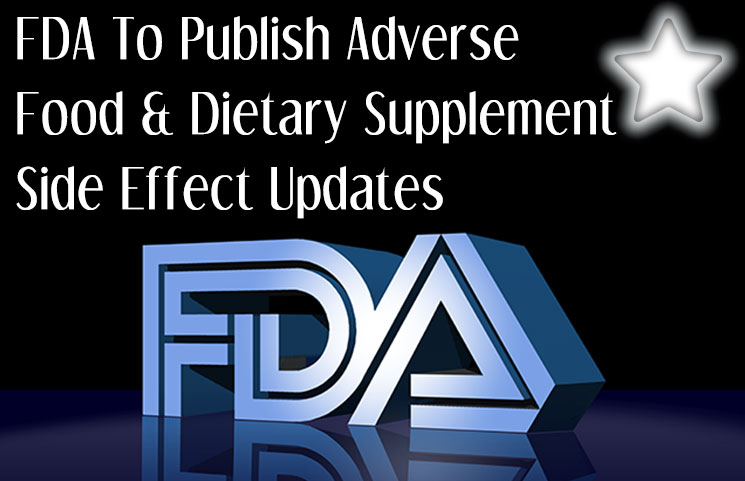
Have you ever wondered if the supplement you’re taking has made someone sick? Thanks to a new database from the Food and Drug Administration, you can know with certainty that your supplement has made someone sick in the past.
The FDA recently made the database available via its website. The database is a collection of all consumer complaints filed to the FDA by the public.
After you file a report to the FDA, that report gets reviewed by the agency, then filed away into a database. For years, that database has been internally accessible, but it has never been available to the public.
That changed this past week, when the FDA’s Center for Food Safety and Applied Nutrition (CFSAN) took an important step towards transparency, making all complaints available using this website.
For the first time, consumers, physicians, and manufacturers will be able to search for complaints about specific products. You’ll be able to see if that protein powder has given someone gastrointestinal discomfort before.
At the same time, the publicly-accessible database is expected to allow journalists and researchers to hold the FDA accountable. Journalists will be able to notice when a supplement has had multiple complaints in the past, and can ask why the FDA is not taking action against that supplement.
Consumer Reports quoted an industry policy expert in their writeup, saying,
“This additional transparency may help consumers learn about potentially dangerous food, supplements, and cosmetics faster than they would otherwise.”
Previously, journalists and the public could access this information through a Freedom of Information Act request, then wait weeks or months to get a response. Today, it’s all available to download for free online in a searchable spreadsheet.
How Many Reports Does the FDA Get?
Have you ever taken the time to file a complaint with the FDA over a problematic supplement? Probably not. However, tens of thousands of people have taken the time.
The FDA reports that their CFSAN received 56,574 “adverse event” reports between January 2004 and September 2016.
Of those reports, 26,840 were complaints about foods, 25,412 were complaints about dietary supplements, and 4,322 were complains about cosmetics (drugs are in their own category and have a separate reporting system).
Most of these reports do not come from individual patients or consumers. Instead, most come from medical professionals, including doctors, pharmacists, and nurses. Other reports are filed by individual consumers, including their family members and, in some cases, their lawyers.
What to Know Before You Use the Database
The database is far from perfect.
Obviously, consumers are not required to report complaints about foods, supplements, or cosmetics. That’s why you should not consider the list of complaints to be an exhaustive list of all potential problems linked to a supplement.
You’ll notice another trend on the list: some of the world’s most popular supplements have dozens of serious-looking complaints against them. You may be tempted to avoid these supplements because of a perceived higher risk. However, popular supplements will inevitably have more complaints simply because more people are using them.
One of the flaws of the database is that there’s no way to show what percentage of users reported the adverse side effects when using the product.
Another problem is that you don’t know the unique characteristics of the person reporting the problem. You don’t know if the side effect is linked to a pre-existing illness or a medical condition, for example.
Ultimately, all of these problems significantly limit the value of the database. Nevertheless, if you experienced adverse reactions to a supplement – or if you are worried about adverse reactions – checking the database isn’t a bad idea.
You can scan the 12 year history of the CFSAN Adverse Event Reporting System (CAERS) here.
You can also report a problem with a food, supplement, cosmetic, or drug product here.